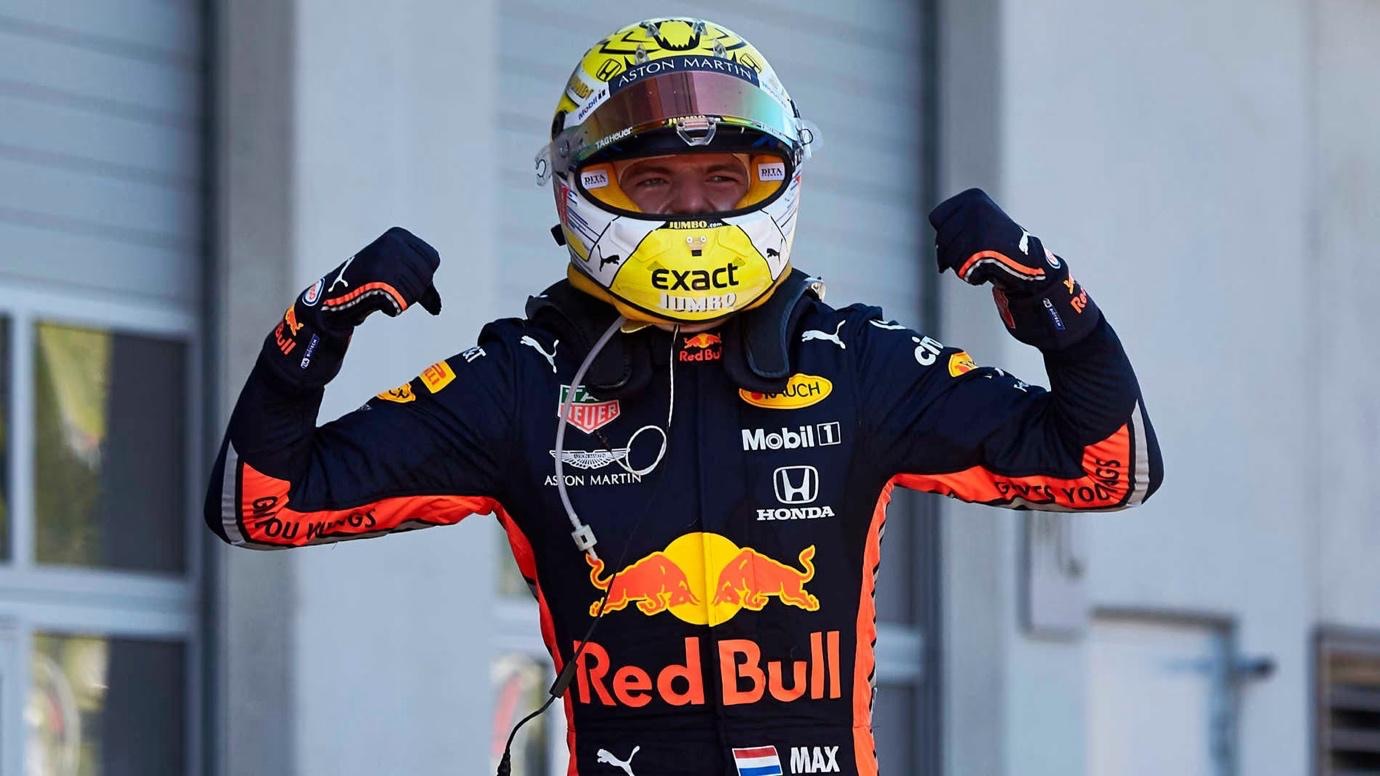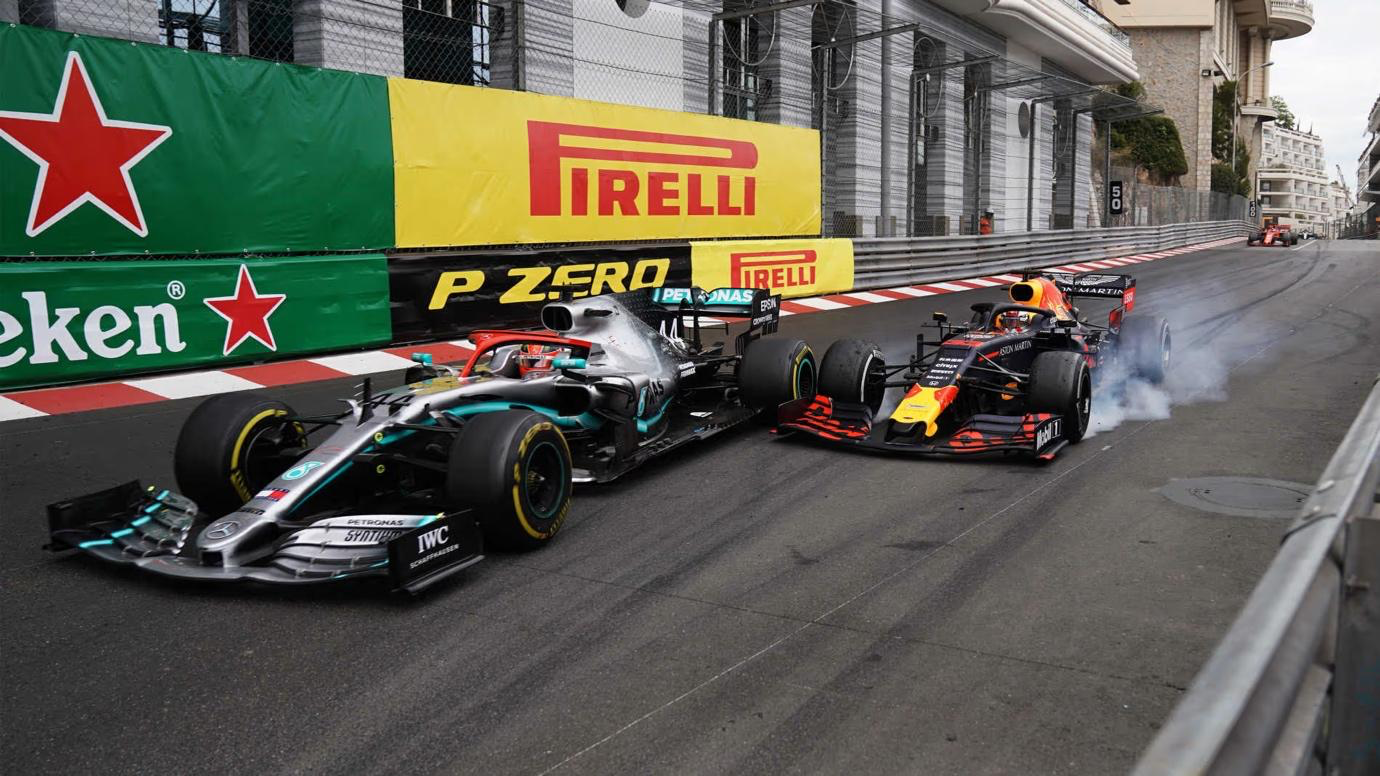
Given the thousands of column inches, millions of words, and hours of video content that have revolved around Max Verstappen since his explosive debut in 2015, it's easy to assume that everything there is to say about the four-time world champion has been said. But as he approaches his 28th birthday, it's worth revisiting Verstappen’s evolution as both a driver and individual. For, the talismanic world champion we see light up proceedings week after week is not the same kid who turned heads back in 2015.
Elevated to Formula 1 after just a single season in junior formulae, Verstappen was, at 17 years and 166 days, the youngest driver ever to start a grand prix. Though some cried foul at the prospect of a teenager being thrust into the highest echelon of motorsport, Verstappen’s raw talent was always clear to see.
In contrast to Kimi Antonelli, who starts his weekends cautiously and attempts to build momentum through each session, Verstappen has always had the confidence to push from the very start of FP1 to the end of the race. With talent and confidence on his side, Verstappen was always going to produce eye-catching results. He would have scored points on debut were it not for a mechanical issue; he did score points at the very next race in Malaysia, and once the now-famous mid-season Red Bull call-up came in 2016, Verstappen wasted no time in getting stuck in. He qualified fourth in his first race for the team, and although the subsequent victory was circumstantial, the 18-year-old held off a bona fide world champion in Kimi Raikkonen, to become the youngest ever Formula 1 race winner.
Over the next two years, Verstappen would add four wins and 17 further podiums to his tally. But between 2016 and 2018, Verstappen’s emphatic highs were frequently offset by some controversial lows. Uninhibited in wheel-to-wheel combat, the Dutchman soon earned a reputation for questionable on-track behaviour. In 2016, his penchant for late direction changes, movement under braking, and forcing other drivers off track pushed the racing guidelines to their limits. Verstappen’s race craft earned the ire of some of the biggest names in Formula 1 and even led the then race director Charlie Whiting to call a meeting with him after the 2016 Belgian Grand Prix.
For Verstappen, it was a simple case of no penalty, no problem. Understandable though that mindset was, the full list of dubious on-track incidents in which he was involved between 2016 and 2018 makes for ominous reading:
Even Christian Horner referred to Verstappen as a ‘rough diamond’ during this period, perfectly illustrating his unpolished nature. There was no doubting his speed, but too often we had seen him make moves that hindered him as much as they did his rivals. However, as the 2018 season neared its halfway point, Verstappen would start to morph.
Regardless of whether or not he ever admits it, the 2018 Monaco Grand Prix is likely to go down as the pivot point in Max Verstappen’s career. After crashing in practice and only recovering to ninth in the race – all while his teammate topped every session en route to a memorable win - Verstappen was faced with the consequences of pushing too hard too soon. And while there were extenuating circumstances, the fact is Ricciardo never beat Verstappen again.
Come season’s end, the Honey Badger departed for Renault, and with Verstappen now the unambiguous focal point at Red Bull, his driving underwent a noticeable change. A needless lunge at the 2019 Belgian Grand Prix was the year’s only major black mark; that aside, Verstappen’s racing took on a more measured, cerebral approach. Never mind his newfound consistency (which resulted in 21 consecutive top five finishes between 2018 and 2019), Verstappen’s raw speed was now allied to patience and foresight.
He had every opportunity to send one up the inside of Bottas at Monaco but chose not to. He tried his luck with Hamilton later that same race but had the presence of mind to back out of it. Verstappen secured his maiden pole position (an area in which he could never match Riccardo) in Hungary and demonstrated supreme composure in wheel-to-wheel duels with Charles Leclerc in Silverstone and Hamilton in Brazil.

Three wins, nine poles, two pole positions, and third in the overall standings with just one questionable on-track incident to his name. Max Verstappen had come of age.
Come 2020, the metronomic form showed no signs of easing up. A single ill-timed move in Turkey was the only blemish on an otherwise credible season. Of the 12 races Verstappen finished, he secured podiums in 11 of them. He ended the season third in the championship, just nine points behind Valtteri Bottas, despite the latter being armed with one of the most dominant F1 cars of all time. Were it not for any one of his five DNFs (none of which were his fault), Verstappen could have split the Mercedes’ at the very peak of their powers.
By the end of 2020, Max Verstappen was ready to challenge for a world championship, and while the pressure of that epic 2021 title fight caused him to occasionally overstep the mark (something of which both he and Hamilton could be accused), Verstappen’s indefensible conduct in Brazil and Saudi Arabia was countered by a bold move around the outside in Mexico and an intelligent, Prost - like defence in Austin.
There have been controversial moments since then, of that there’s no doubt. But this notion that Verstappen reverts to his old, desperate self every time the pressure is on is laughable. His duels with Charles Leclerc in 2022 were as clean as could be, his moves in Spain 2022 and Imola 2025 were both bold and precise, and that’s before we get to last year’s Sao Paulo Grand Prix. Fresh off a reactive, retaliatory lunge on Lando Norris in Mexico, Verstappen produced one of the greatest wet-weather drives of all time. Never mind the surgical precision with which he scythed through the field; not once did Verstappen spin, cause a collision, or force another driver off the track. It was as measured and complete a drive as you are ever likely to see, one that (effectively) sealed a fourth consecutive world title.
Upon clinching the crown at the next race in Las Vegas, Verstappen’s rhetoric and conduct were worlds away from his 18-year-old self. His trademark bluntness was now mixed in with an admirable sense of perspective, as Verstappen acknowledged both his racing aspirations outside of F1 as well as his desire to prioritise his family.
Like him or loathe him, Max Verstappen has undergone a distinct evolution both in and out of the car. The immense speed and devil-may-care approach that defined his early years will always be a part of his makeup, but with patience and refinement now in his arsenal, Verstappen is already set for a well-earned spot among the pantheon of Formula 1 greats.



